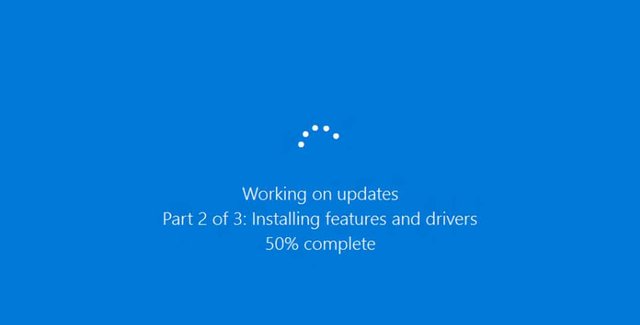Windows 10 updates will take up less space and download faster

Windows 10 updates will take up less space and download faster
Windows 10 updates are downloaded each time more quietly. The only time we are aware of your installation is when the operating system tells us that you have to perform a restart to apply the patches, which is always quite annoying instead of automatically scheduled for the next shutdown of the PC. Now, these updates are going to occupy even less space.
Goodbye delta updates, hello to express updates that occupy half
Microsoft uses three types of updates to apply patches to the operating system: full updates, express updates, and delta updates. The latter are those that the company will stop using as of February 2019, leaving only the first two.
Windows 10 updates will take up less space and download faster
Windows 10 updates are downloaded each time more quietly. The only time we are aware of your installation is when the operating system tells us that you have to perform a restart to apply the patches, which is always quite annoying instead of automatically scheduled for the next shutdown of the PC. Now, these updates are going to occupy even less space.
Goodbye delta updates, hello to express updates that occupy half
Microsoft uses three types of updates to apply patches to the operating system: full updates, express updates, and delta updates. The latter are those that the company will stop using as of February 2019, leaving only the first two.
The reason for doing this is that they only want to depend on the first two to leave only the express updates as minor patches to make the packages occupy less. And is that these express updates take less thanks to patching individual files, and not entire components (which deltas do). For example, the tcpip.sys file was updated in March, April and May. Thus, they create a differential file with the changes made between April and May, and between March and May, and another with all the changes for the month of May.
The first cumulative updates following a major release like April 2018 Update take between 100 and 200 MB. However, over the months these patches reach up to 1.2 GB. Thanks to this, complete updates are maintained in a stable size around 1 GB, while express updates take between 150 and 200 MB each month. The delta, which will no longer be available, would occupy between 300 and 500 MB in size, by including complete components.
Delta updates will no longer be available in February 2019
Therefore, the more updated a file is, the smaller the size of the differential updates will be. And this size continues to grow as the operating system has more components, so a more effective solution was needed; which delta updates no longer offered.
Delta updates will continue to be available in Windows 10 for users of the Anniversary Update through April 2018 Update. Once these versions reach the end of support, they will stop including this type of patches. This supposes a greater work for Microsoft, but in return it has that the bandwidth that uses the updates is going to reduce in more than half, benefiting users and to companies that have to update tens or hundreds of computers.